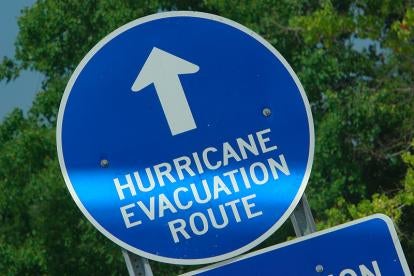As we find ourselves in the midst of hurricane season, it's essential to heed the advice of hoping for the best and preparing for the worst.
These powerful storms are unpredictable, and despite our best efforts to prepare, they often leave a trail of destruction in their wake. When the winds finally die down and the floodwaters recede, they often leave behind a real and meaningful challenge: recovery.
To ensure you're ready for whatever Mother Nature throws your way, we've compiled a series of articles designed to help you navigate the aftermath of a hurricane more effectively. From understanding insurance claims to safeguarding your community, we have the resources you need to make recovery a little less daunting.
Homeowners and Community Associations
A Few Things You Should Know in Case of Windstorm Damage to Your Home or Building
North Carolinians know when Hurricane season begins and ends; we know what a "spaghetti model" is; and we know who in our neighborhood has a generator! But do we know enough about windstorm insurance policies and how to successfully manage an insurance claim? This article provides some tips to consider in the unfortunate event of a windstorm insurance claim. This article does not discuss flood insurance claims. Read more.
Disasters Take Many Forms – Preparing Your Community Association for the Unexpected
Disasters, natural or otherwise, are usually unexpected and leave little time for advance action. Hurricanes, named storms, floods, fire, and even crime, are types of disasters that communities across North Carolina may experience.
Equipping your community association with the knowledge necessary to navigate natural disasters or other unexpected events is crucial to minimizing damage and recovery. Read more.
Congress created the National Flood Insurance Program (the "NFIP") to help make flood insurance more affordable in higher-risk areas. FEMA oversees the program and writes the terms of the Standard Flood Insurance Policy (the "Policy"), and the Federal government pays claims. Since the NFIP is a government program designed to help those suffering from flood damage, you might think that the claims process is worry-free. Unfortunately, that could not be more wrong! Read more.
When is a General Contractor's License Required for Emergency Remediation Services?
The lines between remediation, demolition, and repair are often blurred. Many emergency remediation companies, particularly those from out-of-state, may not realize that they are wading into territory that requires a general contractor's license in North Carolina. North Carolina has a fairly broad definition of what constitutes general contracting for which a license is required. This article will provide some general guidance about when a license is required. Read more.
Don't Jump Without a Parachute! Understanding Community Association Insurance Needs
The purpose of this article is to educate Community Association Board members regarding the types of insurance their Community Associations should consider carrying, and which gaps in insurance coverage they should be wary of when evaluating and selecting the right insurance coverage for their Community Associations. Read More.
Employers
Employer Survival Toolkit for Natural Disasters and Inclement Weather
From an employment perspective, employers should consider adding or refining the following tools in advance of the next natural disaster or adverse weather event. Read more.
A Short Refresher on Discrete Legal Issues During Natural Disasters
As they say, an ounce of prevention is worth a pound of cure. In that spirit, what follows are certain pay and leave issues employers may confront during times of natural disaster – all of which are better to be thought about ahead of time, to the extent possible, instead of "in the moment" once a natural disaster strikes. Read more.
Business owners
Be Sure to Insure: 10 Types of Business Insurance Coverage to Consider
When it comes to protecting your business, having the right insurance coverage is crucial, but how do you know what types of coverage you need? The first step is understanding some of the key different types of insurance coverage available to your business. Read More.





 />i
/>i

